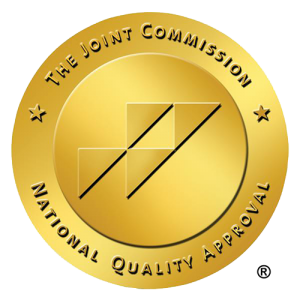What is Shoulder Replacement?
Your shoulder is one of the largest and most complex joints in the body. It’s made up of three bones — the humerus, (the upper arm bone), the clavicle (collarbone), and the scapula (shoulder blade). The rotator cuff is a group of muscles and tendons that hold the ball on the end of your humerus against the cup-shaped socket (glenoid) of your shoulder bone. The rotator cuff also helps you raise and lift your arm.
When the shoulder bones or cartilage become damaged due to arthritis or joint disease, the ball and socket grind against one another. That makes it painful to lift, swing or rotate your arm. Shoulder replacement surgery involves replacing the ball at the head of the humerus with a metal implant and the socket with another implant. The new, artificial joint allows smooth, pain-free movement of the joint.
What to Expect with Shoulder Replacement Surgery
If shoulder replacement is the best option to relieve your pain, your Surgeon will discuss the surgical approach that’s right for you. If your rotator cuff is also damaged, you may need a reverse shoulder replacement. You may be a candidate for a new, minimally invasive option, the Rotator Cuff-Sparing Shoulder Replacement. It’s an innovative approach that allows for faster healing and less pain.
If possible, you’ll be up sitting in a chair the day of surgery. Physical therapy begins the day after surgery and your therapist will inform you about your activity restrictions. Shoulder replacement recovery varies, taking from six to nine months, depending on the type of surgery you have. Your Orthopaedic team is with you every step of the way.
Why St. Elizabeth Healthcare?
When it comes to excellence in total shoulder replacement surgery and care, St. Elizabeth Healthcare offers you a nationally recognized team of experts close to home. Your orthopedic care team consists of physicians, nurses, therapists, program coordinator, nurse managers and team leaders. Our focus is on you and helping you get back to an active life with less pain.
Total Shoulder Replacement
Thank you for choosing St. Elizabeth Healthcare for your orthopedic needs. If you’ve chosen surgery to reduce your chronic pain, increase your mobility, and improve your quality of life, the Orthopaedic Team at St. Elizabeth is committed to helping you reclaim your life.
Our team walks you through each step of the surgical process and helps you to make educated decisions regarding your care. The following links will help you know what to expect before, during, and after your surgical procedure.
Shoulder Replacement – FAQs
Shoulder replacement is major surgery. If it’s an option you’re considering, you probably have lots of questions. The Orthopaedic team at St. Elizabeth Healthcare, which includes affiliated orthopaedic surgeons from OrthoCincy Orthopaedics & Sports Medicine, are here to answer all your questions. We want you to understand what shoulder replacement surgery involves, what you can expect during recovery and how shoulder replacement will impact your life. These are a few questions we frequently get from people considering shoulder replacement surgery.
Contact Us
Is your shoulder pain bothering you?
Schedule an appointment with our Sports Medicine physicians for a treatment plan tailored to you. Call (859) 212-5600 to make an appointment.
Surgical Options
If surgery is necessary, our physicians can provide a referral to one of our affiliated orthopaedic surgeons. For more information on surgical options, please contact us at askortho@stelizabeth.com.





